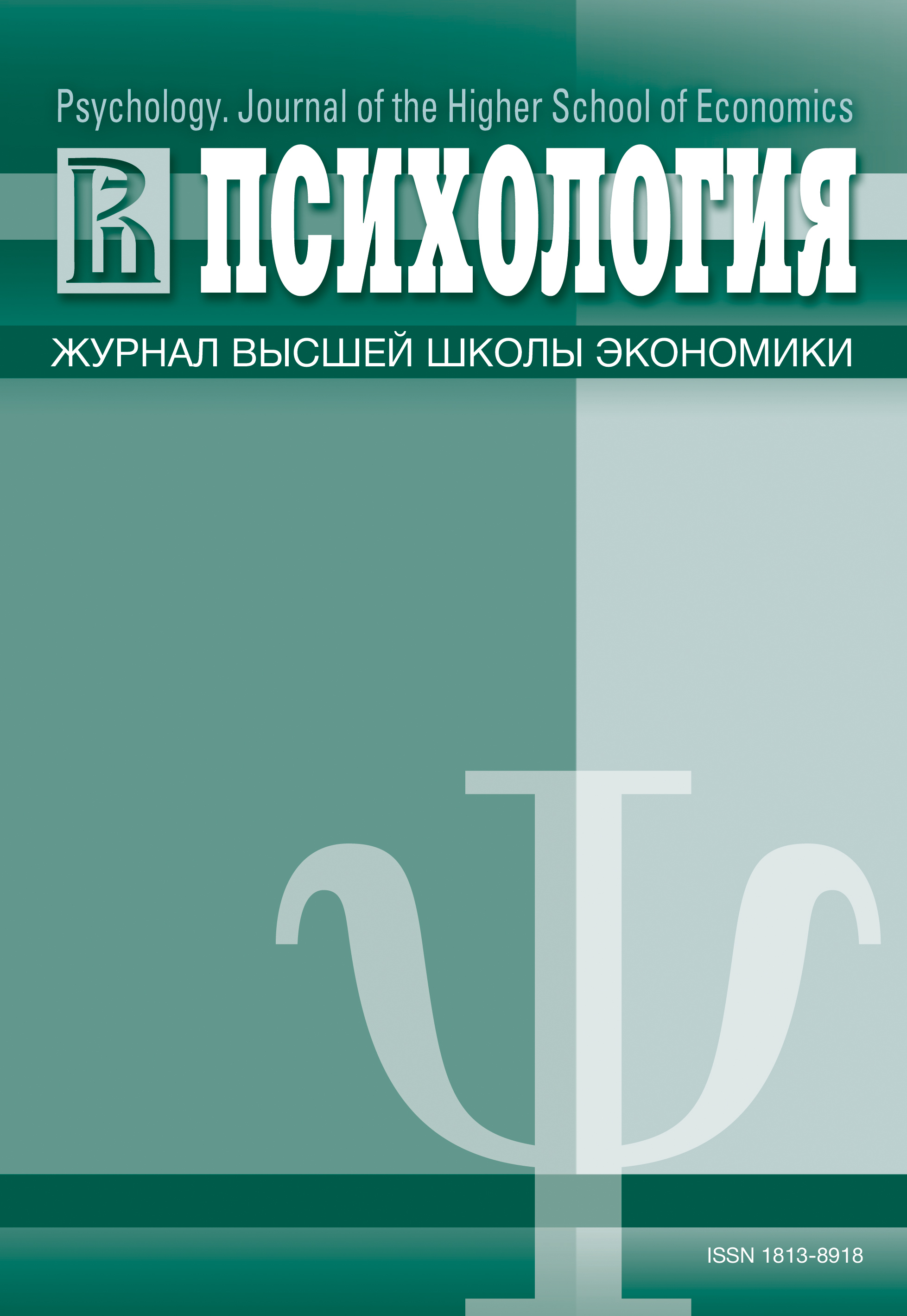Prognosis Calibration in Binary Choice Tasks
Keywords:
overconfidence, binary choice, prognosis calibration, Brier score, duplex scale, bet
Abstract
This works focuses on the problem of confidence in decisions made. Existing studies of prognosis calibration (defined as the ratio between the correct response frequency and the subjective evaluation of response correctness) have revealed that people tend to overestimate the probability of correct responses (“overconfidence effect”). The authors hypothesized that subjective estimates of confidence in decisions made and the accuracy of prognosis calibration depend on the method used to measure confidence. An experimental study was performed in a sample of school students (N=50) and university students (N=36). The participants answered common knowledge questions and evaluated the degree of confidence in the correctness of their answers on verbal scales, using either a standard scale or a duplex scale (rating their confidence in both chosen and rejected answer options). Finally, the participants made bets that the chosen alternatives would be correct. The results indicated that the “overconfidence effect” was weaker in the duplex scale condition, confirming the hypothesis. We explain this finding by the notion of residual uncertainty that remains when two answer options are compared, but not in the standard scale setting, when the respondents’ attention is concentrated only on the chosen answer option. The association between the level of confidence and prognosis quality had an inverse linear shape in the standard scale setting and a parabolic shape in a duplex scale setting. Finally, we found that in cases when the decisions were rational and the confidence ratings were consistent, bets predicted prognosis quality more reliably than verbal estimates did.Downloads
Download data is not yet available.
Published
2013-12-06
How to Cite
КолесниковаД. П., & БелянинА. В. (2013). Prognosis Calibration in Binary Choice Tasks. Psychology. Journal of the Higher School of Economics, 10(4), 42-66. https://doi.org/10.17323/1813-8918-2013-4-42-66
Issue
Section
Psychology of Economic Desicions





